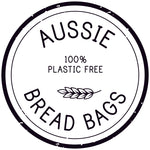It’s generally accepted now that single use plastic grocery bags are not the best invention when it comes to environmental sustainability. They are not the way to ensure a clean, green and healthy future for our children.
But, when we still live very busy lives and are incredibly time poor, convenience is a must in our daily lives and single use bags at the supermarket just made things so easy. No worries about forgetting the reusable bags in the car (or at home). No reducing the amount of shopping you do to fit the bags you have with you. No buying additional bags that you need at the moment, but don’t need later, you have enough at home.

Single use bags were always there, you didn’t have to think about them, and they just magically increased in number according to your shop. So, how can we balance the convenience that single use plastic grocery bags gave us, with a sustainable, green future?
What alternatives to plastic grocery bags are available?
Let's find out…
Alternatives
The most popular alternatives to plastic grocery bags are jute or hessian, canvas or calico and paper bags (reusable of course).
What are the pros and cons of these and why are they the most popular?
Pros
Jute or hessian bags are the best options available as alternatives to plastic grocery bags. They are made from natural fibres which are renewable and sustainably produced. They are also biodegradable, so when they are too worn to use again (after hundreds, if not thousands of uses), just throw them on your compost heap and they will break down.

Source: alburyenvirobags.com.au
Calico or canvas bags also can be used hundreds or thousands of times, but an added bonus is that they are washable. That means no more dirty bags. Just pop them in the machine and they return to new. When you are choosing your bags, choose cotton options, as they last longer and have a more sustainable production footprint. As with jute or hessian bags, once their usable life is over, the materials are biodegradable, so cut them into small pieces and pop them in the compost.

Source: www.aussiebreadbags.com.au
Paper bags are made from renewable sources, can be very easily composted and can also be recycled. They are a winner also, just watch they don’t get wet!!

Source: officeworks.com.au
Cons
The only real drawbacks of either jute and hessian or calico and canvas bags are their manufacturing processes. They can have quite a significant footprint, so be careful to source sustainably produced bags and use them for their whole useful life. This will counteract any initial impacts.
Paper bags’ biggest drawbacks are their manufacturing process environmental impact and that they can only be used a few times.
Our recommendation
What’s our recommendation for a sustainably produced, reusable grocery bag to replace single use plastics?
Aussie Bread Bags! The range now has a new produce bag for your fruit and veggies, keeping things together and increasing convenience… the bag you put your bread or veggies in in the shop is the one they can be stored in when you get home! No double handling.
Aussie Bread Bags keep your bread and produce fresher for longer, are large and sturdy, made from renewable fibres, are washable, compostable, Australian made… the list goes on! Check out the range and their benefits here - https://www.aussiebreadbags.com.au/collections/larger-aussie-bread-bags.
